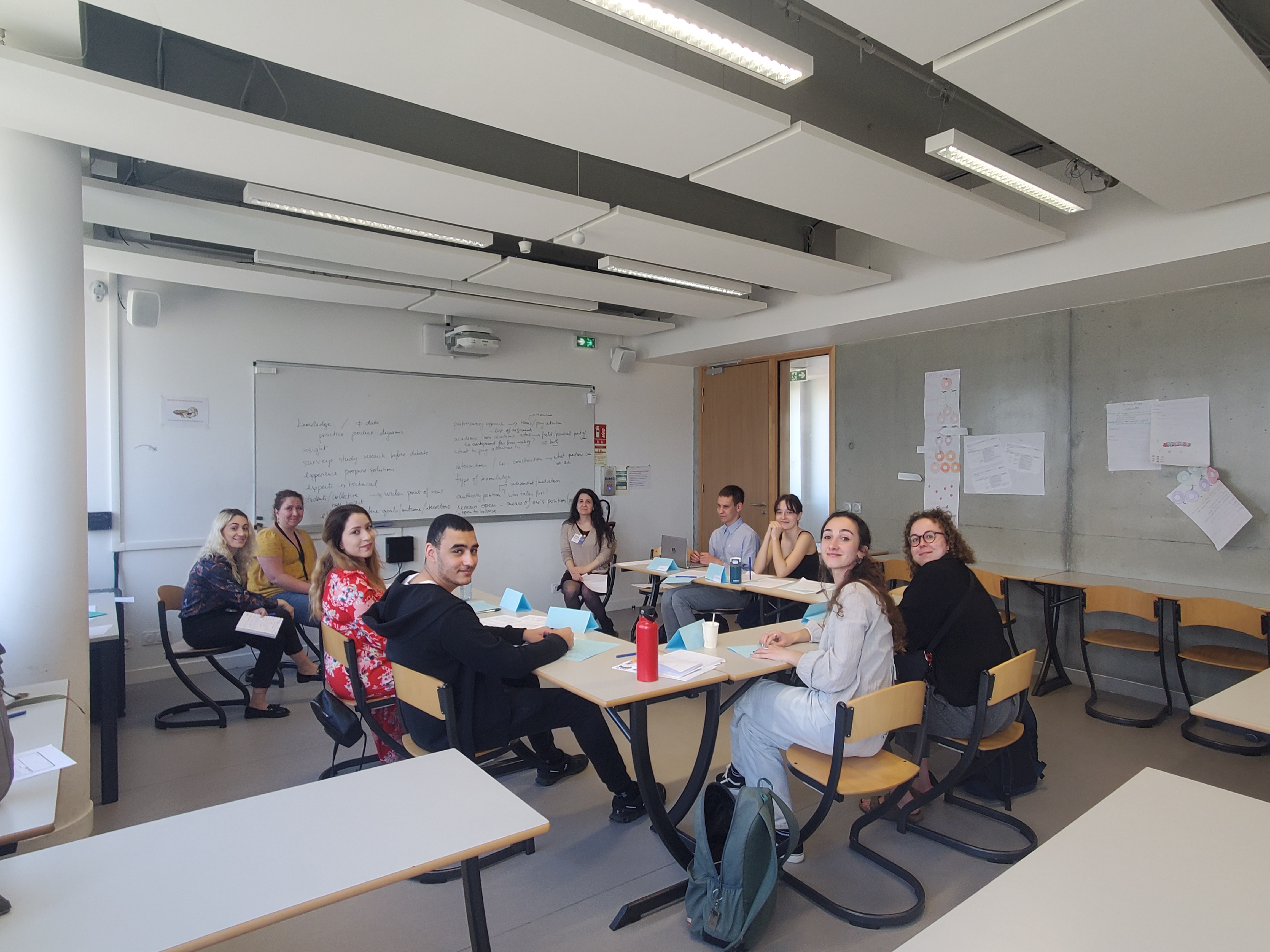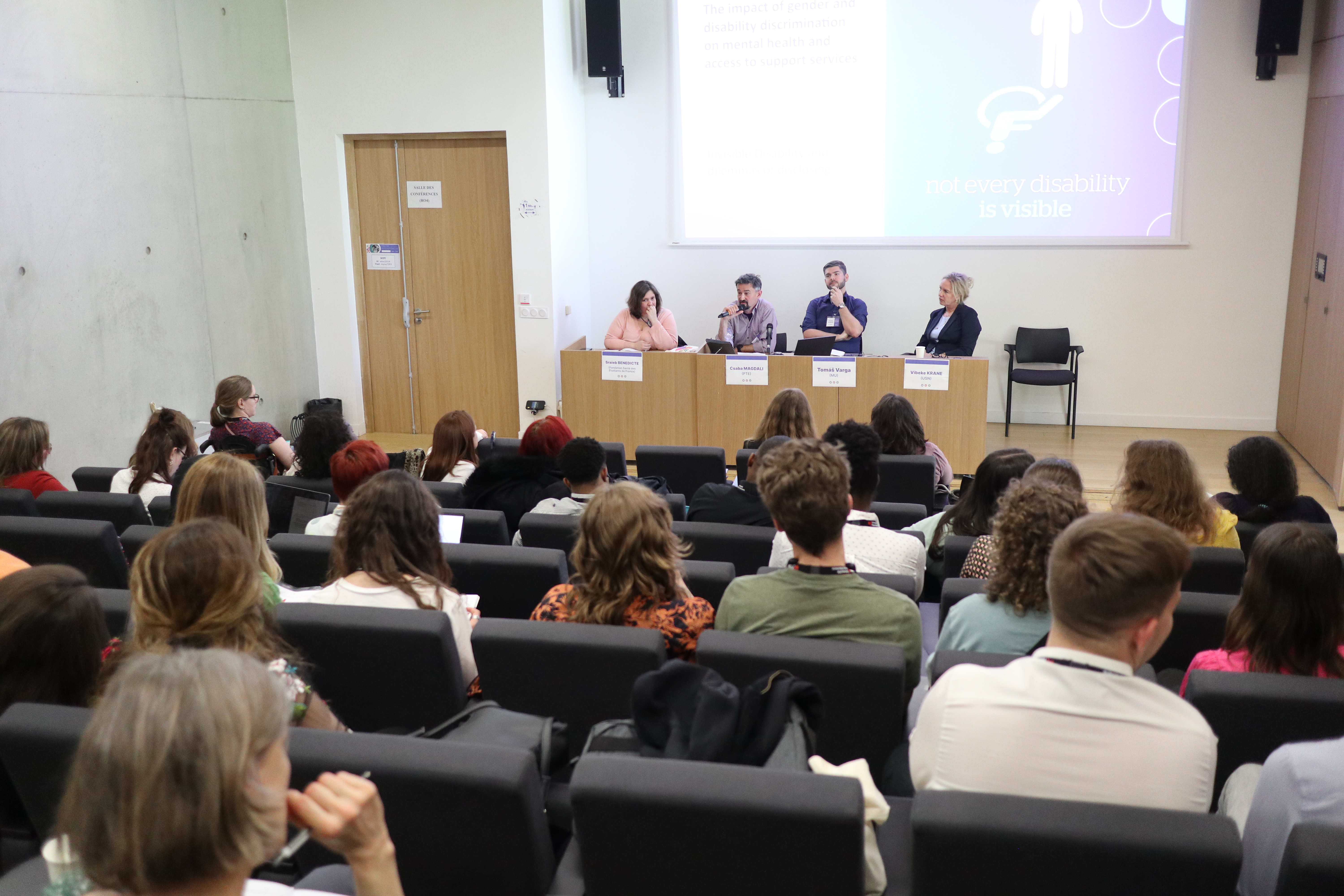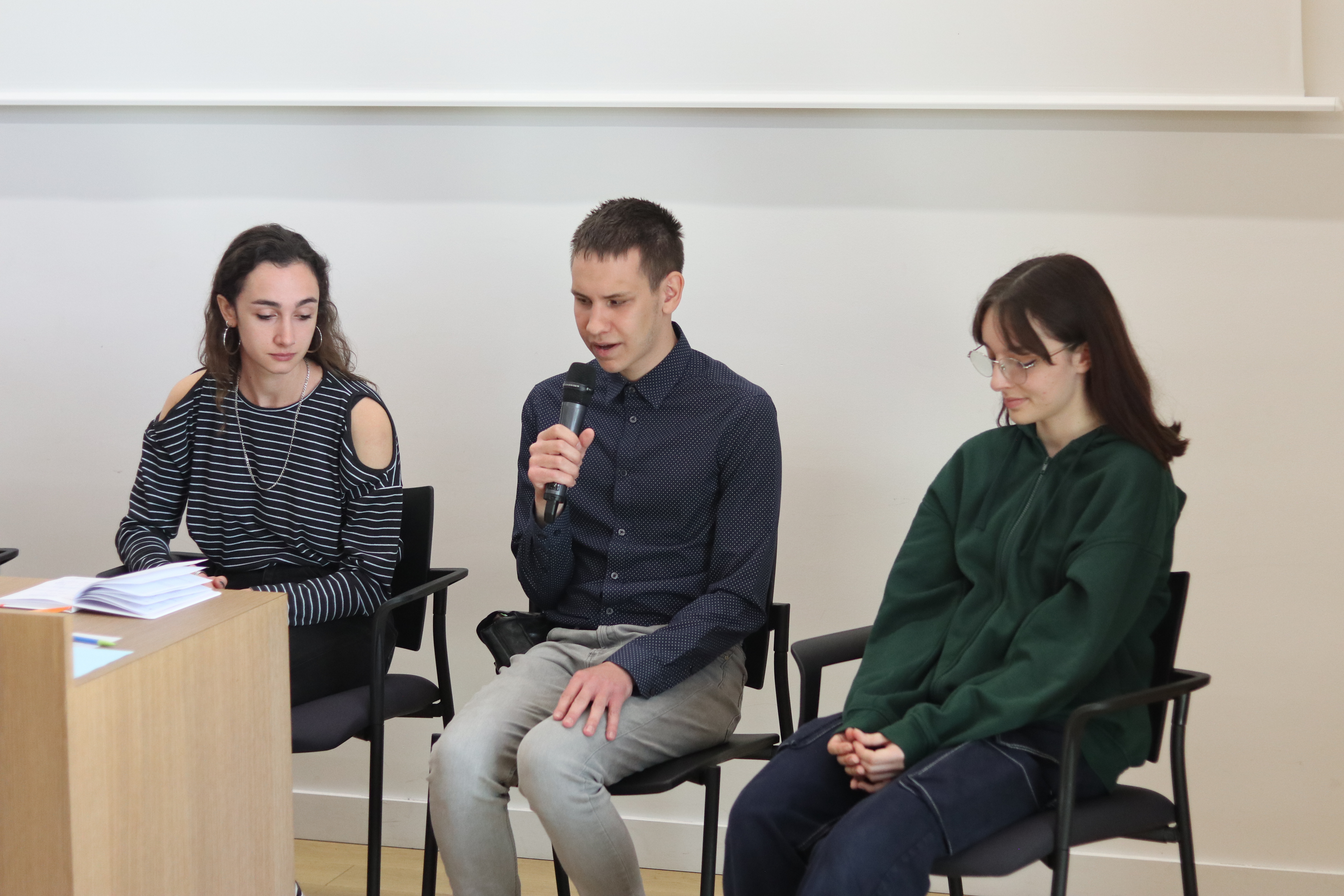
In April, the inaugural Youth Integration Lab programme of EDUC was held at Paris Nanterre University, focusing on improving the lives of students with disabilities. Bendegúz Pisch, a visually impaired student from the Faculty of Humanities at the University of Pécs, represented PTE at the event. For international travel, it is recommended that visually impaired individuals are accompanied by at least two escorts, enabling Bendegúz to be joined by Csaba Magdali, Head of the Support Service, and Márk Macanko, Co-chair of the Social Inclusion College.
What was the focus of the event? The event centred on addressing the challenges faced by people with disabilities and reviewing the institutions and systems designed to support them. A key area of discussion was the academic environment, which presents unique difficulties not commonly found in other areas of life. Two programmes were held concurrently: one for professionals (such as PhD students, university lecturers, and disability coordinators) who already had significant experience in the field, and another for students who were keen to explore these issues and find solutions through interactive workshops.

How did you learn about it, and did you need to apply? I have been aware of EDUC for some time. In the spring of 2022, I spent a semester at Masaryk University in Brno, Czech Republic, as part of the Erasmus programme. However, due to the need for special assistance, it would not have been feasible to manage the programme solely through Erasmus.
EDUC offers opportunities for students with disabilities to take part in Erasmus study programmes. I learned about this particular event through the PTE Support Service, when Csaba Magdali, the head of the service, brought it to my attention. We then began looking for an escort for me, and through the Social Inclusion College, we were able to find Márk Macanko. Márk and I worked together very well, and I was thrilled that we had the chance to get to know each other better during the programme. We have since remained close friends and often meet up.
What was discussed during the three-day event? On the first day, experts presented a range of case studies and scenarios related to the conference's main themes. Topics included invisible disabilities (such as dyslexia), the creation of accessible spaces, and systems supporting those with mental health issues. On the second day, we took part in workshops, where Márk and I attended separate sessions. My workshop involved a role-playing game in which we had to address various accessibility issues from different perspectives. Participants took on roles in a project planning team – for instance, one was a researcher, another handled university finances, and another represented the student union. Through these role-plays, we simulated the challenges that might arise during the implementation of an accessibility project and the different interests that stakeholders might bring to the table.
The event concluded with a joint session in which students first presented their findings, followed by expert reflections on the proposed solutions.
How can this event benefit you or PTE in the future? The programme provided valuable insights that could greatly assist in organising a related project. Some of the topics discussed were not only relevant to individuals with disabilities. For instance, when discussing accessible educational and teaching materials, there was also a focus on how to present research findings in a simpler format for the general public.
We also made connections with an organisation supporting university students with disabilities, and we hope to establish a partnership with them in the future. As we are planning to organise a similar programme next spring, this event was invaluable for gaining experience on what such a conference entails, how it can be structured, and what to prioritise during the planning process.
Originally published: Éva Harka: Jó gyakorlatok a fogyatékossággal élő hallgatókért. [2024.06.17.]

